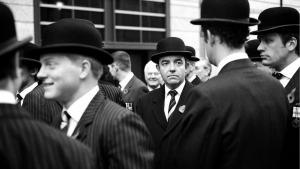 I am currently preparing for a presentation that will look at how the acceleration of today’s market trends, coupled with cross-sector technology innovations, might affect the future of education and assessment. I enjoyed Richard and Daniel Susskind’s book The Future of the Professions and will be referencing some of their thoughts – I recommend it as a very good read.
I am currently preparing for a presentation that will look at how the acceleration of today’s market trends, coupled with cross-sector technology innovations, might affect the future of education and assessment. I enjoyed Richard and Daniel Susskind’s book The Future of the Professions and will be referencing some of their thoughts – I recommend it as a very good read.
The changes this is bringing the professional world is a far cry from a time when McKinsey consultants had to wear a bowler hat as part of their uniform as evidence of their professionalism. Today, with fewer jobs for life, much less security and very little predictability, we will see both disintermediation and decomposition of roles within the professions and a new emphasis on the ability to learn and adapt as roles change – in smaller, bite-sized pieces, learning and quite possibly assessing on the go.
Knowledge and information have taken on a greater importance compared to traditional assets such as physical capital and natural resources – an educated and highly skilled workforce is among the most valuable assets an organisation has today. But because of the pace of change and progression, the workforce must continually retool its skills.
The knowledge economy is also borderless and knowledge workers are not a homogenous group; they have specialised skills and perform specialised roles, and knowledge workers do not spend their careers with one company; they change jobs frequently and with future generations the likelihood is this will increase.
Therefore, lifetime employability instead of lifetime employment is the goal of knowledge workers. Yet more and more tasks that once required human beings are being performed more productively and cheaply by machines and new capabilities are emerging on an almost daily basis. Machines can look back into data, discern patterns and make predictions (Big Data). Systems such as IBM Watson, with whom we have partnered here at Pearson, can perform tasks that we normally think requires human intelligence. Machines can interact with manual skill and dexterity via robotics and systems are getting smarter at detecting and expressing emotions.
We used to believe these tasks were the sole purview of human beings – are we just training machines to make us redundant? How do we stay in the game, differentiate and compete?

